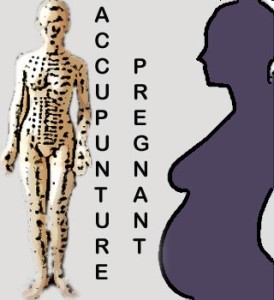 Expectant mothers often ask if Acupuncture during Pregnancy is safe, and if so, who should they use as an Acupuncturist given that many different types of healthcare practitioners offer acupuncture treatments.
Expectant mothers often ask if Acupuncture during Pregnancy is safe, and if so, who should they use as an Acupuncturist given that many different types of healthcare practitioners offer acupuncture treatments.
The short answer is that acupuncture during pregnancy IS safe and there are very minimal risks to receiving acupuncture during pregnancy. However, the risk of miscarriage may increase if incorrect acupuncture points are used. This is the main reason why those choosing to include acupuncture in their treatment regimen should only be treated by a trained Chinese Medical Acupuncturist who has special line of study in treating fertility disorders and pregnancy. Chinese Medicine assesses and treats each patient as an individual, with treatments tailored to each patient’s unique health issues and needs. Chinese Medical Acupuncturists receive lengthy training in the diagnosis and selection of the correct acupuncture points for each individual – and in treating patients who are pregnant this means the patient’s overall health must be assessed, any issues identified and appropriate treatment protocols and acupuncture points selected.
Within Traditional Chinese Medicine, Acupuncture is used to treat and prevent issues related to fertility, pregnancy, post-partum health problems, infant and pediatric issues (areas that I am interested in).The main purpose of Chinese Medical Acupuncture during pregnancy is to help ensure normal internal organ function for the pregnant mother while encouraging normal qi (“energy”) and blood flow to nourish the fetus and encourage normal fetus growth.
As a Traditional Chinese Medical Acupuncturist and TCM Practitioner, I treat pregnancy and fertility disorders. I always explain to my patients beforehand exactly what I am doing, where the needles will be applied and why, as well as the expected results. I find this generally alleviates any concerns that my patients may have with the treatment. Acupuncture is generally safe regardless of a person’s medical history.
Acupuncture is generally painless. The needles used are of a thickness of 1-2 hairs (much thinner than needles used for an injection) and most patients don’t even realise that the needle has been inserted. The duration of Acupuncture treatment lasts between 20 minutes and 45 minutes depending on the need of the individual patient.
During an acupuncture session, very fine needles are used to on various part of the body to stimulate normal Qi and blood flow. Without getting into the theory of Chinese meridian channels and Qi, simply put, this unblocks energy stagnation and allows proper blood and energy flow to nourish the fetus. The selection of the correct acupuncture points to use for each individual is important, particularly so with pregnant mothers, and this is one of the critical skills that Chinese Medical Acupuncturists are taught over a lengthy (multi-year) full-time training program,
Traditionally, Chinese Acupuncture during pregnancy is used to alleviate body aches and pains, reduce discomfort, encourage healthy appetite, reduce nausea and vomiting, prevent loss of voice (Aphonia), normalize blood pressure, regulate body fluids to reduce edema and address problems that may occur related to retention of urine. The latter is particularly important as high blood pressure and edema are symptoms of pre-clampsia which if untreated can be life threatening to both the mother and the fetus.
Other uses of Chinese Acupuncture while pregnant include: increased energy, promoting normal bowel movement, reducing bloating, acid regurgitation, anxiety and promoting good sleep. During the last stage of pregnancy, Acupuncture can if desired be used to correct the position of the fetus (to prevent breech birth position) and if necessary to induce labour. In critical situations such as bleeding and convulsions, Chinese Acupuncture has demonstrated its effectiveness in halting abnormal bleeding and normalizing blood pressure to prevent eclampsia.
During the postpartum period, new mothers are encouraged to receive Acupuncture to stimulate milk production, to promote uterus contraction and regain body shape. For baby’s reaching the teething stage, Acupressure techniques can be used to help with teething pain, to reduce inflammation and to manage fever.
The author: Bernadette Yu is an Ontario Registered Acupuncturist and Traditional Chinese Medicine Practitioner. Bernadette also lectures in Chinese Herbal Medicine to students at the Toronto School of Traditional Chinese Medicine. In addition to treating more general health issues and concerns, Bernadette was trained in treating fertility and pregnancy issues and can be contacted on 416-722-8813 for appointments.
 Copyright secured by Digiprove © 2013-2014
Copyright secured by Digiprove © 2013-2014